Bad breath is a condition in which the breath has an unpleasant odor that is unpleasant for both the patient and those around them. This is not a rare disease today, according to research, up to 40% of the world’s population has bad breath. Although bad breath is not dangerous, it has certain effects on the patient’s life, causing a loss of confidence when communicating.
Let’s find out the causes and things to note when having bad breath with BIK International Dentistry.

Do you know the causes of bad breath?
1. Causes of bad breath
Bad breath originates from the release of sulfur gas in the oral cavity, and the main cause of sulfur gas evaporation is:
1.1 Bad breath caused by bacteria
In stagnant areas of the mouth such as periodontal pockets, tongue surface, tooth gaps or cavities… there are often many Gram-negative protein-degrading anaerobic bacteria. These bacteria are the cause of evaporating sulfur gas leading to bad breath
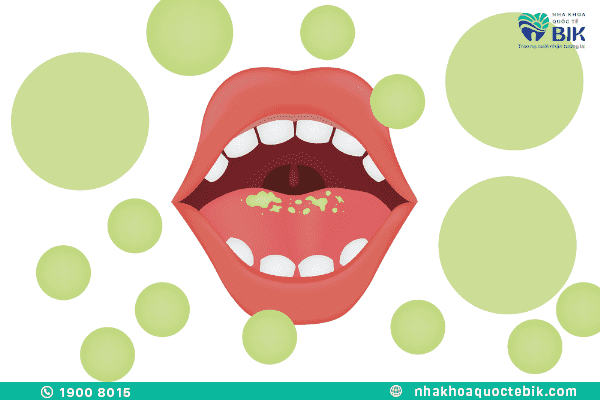
Bacteria are the cause of bad breath
1.2 Temporary bad breath
– In addition to the characteristic bad smell of cigarettes, it also increases the bacteria that cause volatile conditions leading to bad breath. In addition, smokers make bad breath worse and it causes dry mucous membranes.
– When eating onions and garlic, they will produce a lot of sulfuric substances that create a distinct flavor similar to anaerobic bacteria that cause bad breath, but they will disappear after oral hygiene. In addition, garlic also affects breathing through the lungs.
– Waking up in the morning with bad breath is a normal condition, the cause of this problem is due to reduced production and secretion of water, which temporarily dries the mouth, causing bad breath.
– Foods that cause dry mouth such as alcohol, protein-rich foods, sugary foods such as milk… when decomposed in the oral cavity will release amino acids, which contain sulfur compounds that cause bad breath.

Diet is the cause of temporary bad breath
1.3 Bad breath originating from the mouth
– Periodontal and gum diseases such as gingivitis, periodontitis, or acute ulcerative necrotizing gingivitis, implant site inflammation, periodontitis, abscesses cause bad breath.
– Malignant ulcers in the mouth and throat are also the cause of bad breath. Reduced salivation in the mouth due to age, radiation therapy, chemotherapy, etc. will also cause bad breath. Plaque on the tongue and between teeth due to poor oral hygiene or Candida infection also causes bad breath.
– Bad breath can also be caused by plaque on orthodontic appliances, braces or dentures. Bone diseases such as osteomyelitis, osteonecrosis, or dry socket can also cause bad breath.
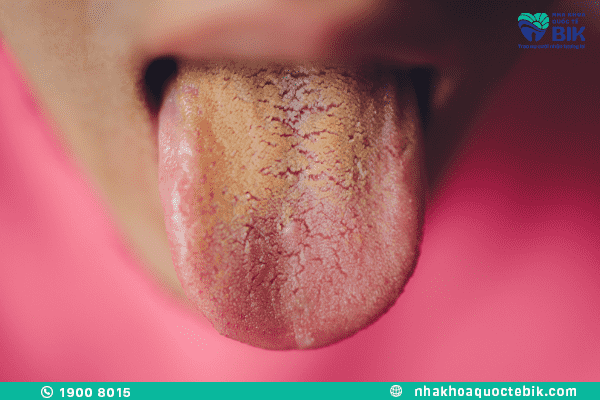
Oral diseases will also lead to bad breath
1.4 Other causes of bad breath
The cause of bad breath does not only come from the mouth, in addition, bad breath is also affected by the following causes:
– Throat diseases: Patients with long-term sore throat, respiratory tract infections (nose, sinus, tonsils, throat) are also quite common causes of bad breath.
– Diabetes, liver and kidney diseases also have the risk of affecting the smell of breath due to the breakdown of fat in the body.
– Bad breath is a typical symptom of esophageal and gastric reflux disease. In addition, when the stomach is infected, causing inflammation and ulcers, it is also the cause of bad breath.

Digestive tract diseases also lead to bad breath
2. Symptoms and diagnosis of bad breath
2.1 Symptoms of bad breath
– Breath has a very unpleasant odor every morning.
– There is a strange taste in the mouth, throat (sour, astringent, bitter…) even though the mouth has been rinsed clean.
– Lots of tartar, tongue has lots of plaque causing discomfort, unhygienic.
– Little saliva secretion, dry mouth.

Bad breath is the most common symptom of bad breath
2.2 How to diagnose bad breath
Bad breath can be diagnosed at home or at the clinic, specifically the diagnosis is as follows:
Diagnose bad breath at home
– Use your tongue to lick your finger or wrist, then smell see if there is a bad smell.
– Place your palm in front of your mouth, then exhale through your mouth and then smell to see if your breath has an unpleasant smell.
– Smell the dental floss after using dental floss to clean between your teeth.
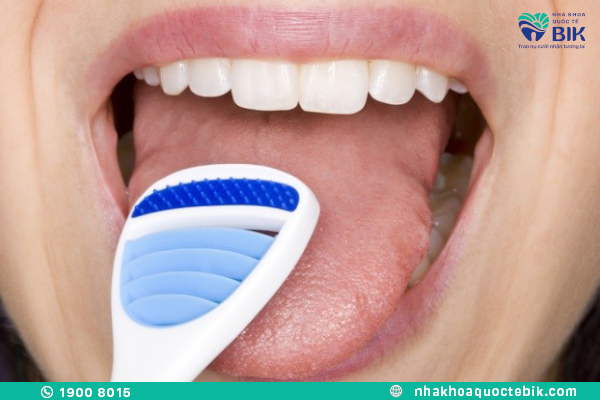
You can diagnose bad breath at home
Diagnose oral diseases at the clinic
To be more sure, the patient can go to a specialist clinic for a check-up. At clinics, there are halimeters to help check breath accurately. Help patients better understand the cause and condition of the disease to have appropriate treatment.
3. How to prevent bad breath
To prevent bad breath, we need to take care of and clean our teeth carefully. Pay attention to diet, sleep, exercise… keep our health in good condition, to avoid digestive diseases. This will prevent bad breath.
In addition, there are the following tips to prevent bad breath:
– Do not smoke.
– Drink plenty of water every day.
– Chew sugar-free gum to stimulate more saliva secretion.
– Limit eating sugary foods.
– Avoid some foods that cause odors such as onions and garlic.
– Replace soft-bristled toothbrushes every 3 or 4 months after use.
– Actively treat diseases in other organs: liver disease, kidney disease, diabetes, gastroesophageal reflux syndrome.
– Check oral health and have teeth cleaned every 6 months.
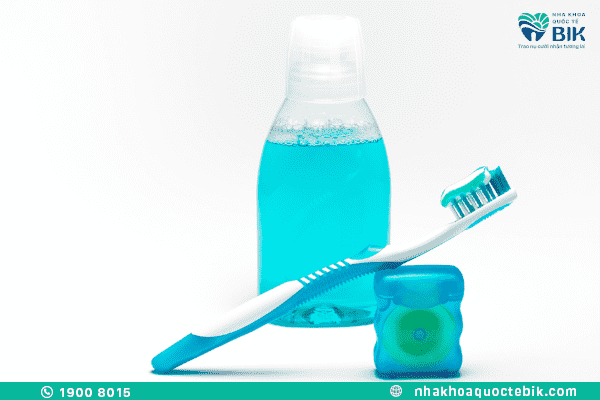
Pay attention to good oral care to avoid bad breath
4. How to effectively treat bad breath
To completely treat bad breath, you first need to go to a specialist clinic to know the exact cause so that you can have the appropriate treatment.
How to treat bad breath caused by the mouth
– Pay attention to oral hygiene in the morning, evening and after every meal
– Use mouthwash
– Pay attention to proper oral hygiene
– Change your diet appropriately, avoid foods high in sugar, foods that cause dry mouth
– Do not smoke
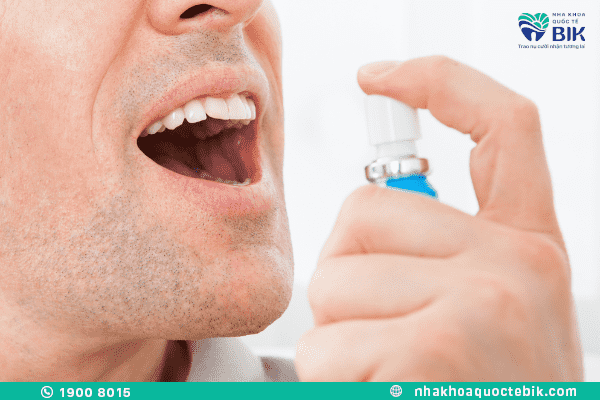
Use mouthwash to treat bad breath
How to treat bad breath caused by other diseases
For bad breath caused by kidney or digestive diseases, the patient needs to go to the hospital immediately to treat these diseases, then the bad breath will also be cured.


















